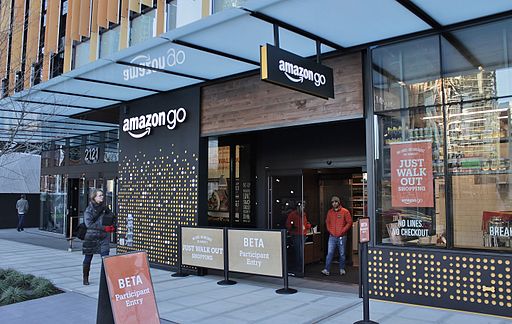The Amazing Amazon
I’ve been a fanboy of Amazon for many years. My first purchase occurred nearly 20 years ago, when Amazon was relatively new. I love to order from them during the holiday season, avoiding the long lines at many retail stores. I own a Kindle, Fire tablet, Fire TV, and Fire stick. Each of my kids owned a Fire tablet at some point. An Echo sits on my kitchen counter, often used to set timers, play music, and create a grocery list. So when I saw Brad Stone’s latest book, Amazon Unbound: Jeff Bezos and the Invention of a Global Empire, I bought and read the book, cover to cover, to soak up of the awesomeness that is Amazon.
Stone previously wrote a book on Amazon titled, The Everything Store. I have not read that older book. This book covers the past ten years, everything since the last book was published. And a lot has happened at to them in those ten years.
Amazon Inventions
Part one of the book talks about all the inventions Amazon accomplished in the past 10 years, both those that succeed and those that failed. Yet, some of the “inventions” he discusses, were not so much inventions as marketing ideas. There is, of course, a detailed discussion of Amazon Echo and its corresponding Alexa voice recognition software. And of course a chapter on Amazon Go shopping.  But there are also chapters Bezos’ purchase of the Washington Post, the start of Amazon Studios, global expansion, and one chapter with a mess of topics lumped together, covering the inaugural Prime Day, AWS success, and the poor working conditions in Amazon fulfillment centers.
But there are also chapters Bezos’ purchase of the Washington Post, the start of Amazon Studios, global expansion, and one chapter with a mess of topics lumped together, covering the inaugural Prime Day, AWS success, and the poor working conditions in Amazon fulfillment centers.
Amazon Leverage
In part 2 of the book, Stone tracks several developments within the Amazon. Starting with the growth of third party sellers, particular cheap Chinese products. Then Stone discusses Amazon’s exploration the grocery businesses, including its purchase of Whole Foods. And perhaps my favorite chapter of the book, The Last Mile, which discussed Amazon Logistics and its quest for improved supply chain performance. Stone also covered how advertising revenue grew on Amazon marketplace.
And similar to the chapter on the Washington Post, Stone also included a chapter on Bezos’ rocket company, Blue Origin. These side chapters, while interesting, made the book less about Amazon and more about Jeff Bezos himself.
Bezos Invincibility
By the last third of the book, these tangents became more pronounced. An entire chapter reads like a Vanity Faire article, talking about Bezos’ affair, divorce, and the drama![]() surrounding it. Another chapter discussed Amazon’s quest for a new headquarters that again turned into a drama, as politics collided with business sense. As politicians are known to do, they became jealous of it’s wealth and power. So another chapter discusses how politicians started coming after the company. Not just Trump, but Warren, Sanders, and others.
surrounding it. Another chapter discussed Amazon’s quest for a new headquarters that again turned into a drama, as politics collided with business sense. As politicians are known to do, they became jealous of it’s wealth and power. So another chapter discusses how politicians started coming after the company. Not just Trump, but Warren, Sanders, and others.
The end of the book highlights how Amazon not just weathered the pandemic, but grew substantially as people became afraid to go retail stores and ordered everything online. The everything store became the go-to store for everything. The book ends, as you might expect, talking about Bezos stepping down as CEO.
My Take
Overall, there’s much to like about the book. It’s thorough research and even the topics that weren’t particularly interesting to me were easy to read and kept me engaged. I’m a little disappointed in the focus on Bezos’ private life and his purchases of other companies. But they didn’t detract substantially from the good parts of the book. I also found some of the discussion on dissatisfied workers and political shenanigan’s similar to The Ugly Truth, but not quite as bad.
Overall, I rate the book 4/5.


